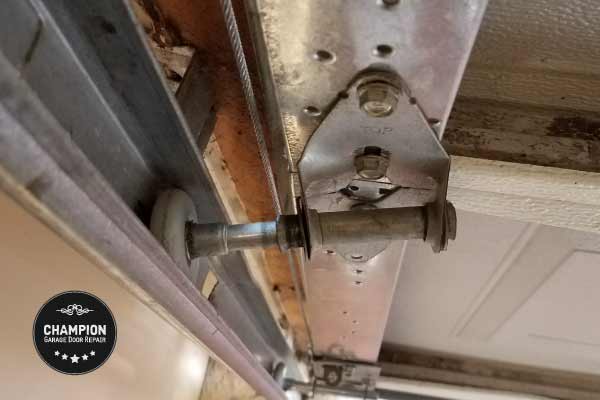The garage door opener is the electric motor unit responsible for automatically opening and closing your garage door. Modern garage door openers typically last between 7 and 15 years. However, several factors can influence whether your garage door opener lasts longer or wears out prematurely.
Six Factors That Can Affect Your Opener’s Life Expectancy
1. Garage Door Overall Condition
A garage door that isn’t maintained properly can lead to increased friction when opening and closing. This increased friction can also put more strain on the garage door opener’s mechanisms, leading to accelerated wear on the gears, sprockets, belt, trolley, and electric motor.
2. Garage Door Springs Condition
Worn garage door springs or springs that aren’t calibrated properly will affect the balance of the garage door, potentially causing it to be too heavy or pull up. This imbalance will strain the opener mechanisms, leading to premature wear and tear.
3. Rollers, Hinges, and Bearings
Worn moving parts like rollers, hinges, and bearings can cause the garage door to stick and bind when its opening or closing, which will strain and wear your garage door opener.

4. The Garage and Garage Door Weather Stripping
An improperly sealed garage may allow moisture, dust, debris, and beach salty air (if you live in a coastal area) to enter more easily. These elements can increase friction and damage your garage door opener’s electrical components.
5. Type of Garage Door Opener
The longevity of a garage door opener can vary depending on the brand, model, durability, and quality of build. Additionally, it depends on how well the opener is matched to your garage door specifications. For example, an automatic opener designed for a 150-pound door that is installed on a 300-pound door is more likely to experience frequent breakdowns and won’t stand the test of time.
6. Frequency of Use
It almost goes without saying, but the frequency of use is a major factor when considering how long a garage door opener lasts. For example, if you use your garage door opener twice a day, it will last longer than if you use it five times a day.
Best Practices to Prolong Your Garage Door Opener Lifespan
You can extend the lifespan of your garage door opener by performing periodic maintenance every 6 to 12 months. This maintenance should include:
- Inspect Springs and Balance the Garage Door: Test the balance of the garage door and the condition of the springs. Make necessary adjustments to the springs or replace them if they are worn.
- Alignment of Tracks and Fixtures: Inspect the door tracks and align them if needed. Ensure they are securely mounted to the wall.
- Maintain Moving Parts: Check the rollers, hinges, and bearings for wear. Replace any worn parts and lubricate them as needed.
- Inspect the Garage Door Sections: Ensure the door sections are not sagging or cracking. Use reinforcement struts to repair sections that are beginning to fail.
- Inspect Garage Door Alignment and Weather Stripping: Verify that the garage door is properly aligned and sealed. Adjust the alignment, repair seals, or replace worn weather stripping as needed.
- Proper Garage Door Opener Installation: Ensure that you choose a door opener that is compatible with your garage door specifications, including weight, size, and type. Professional installation by a licensed garage door repair company is recommended to ensure that the opener is correctly installed and calibrated.
These maintenance practices not only extend the lifespan of your garage door opener but also help prevent unnecessary repairs, and ensure the prolonged, safe, and efficient operation of your garage door.







